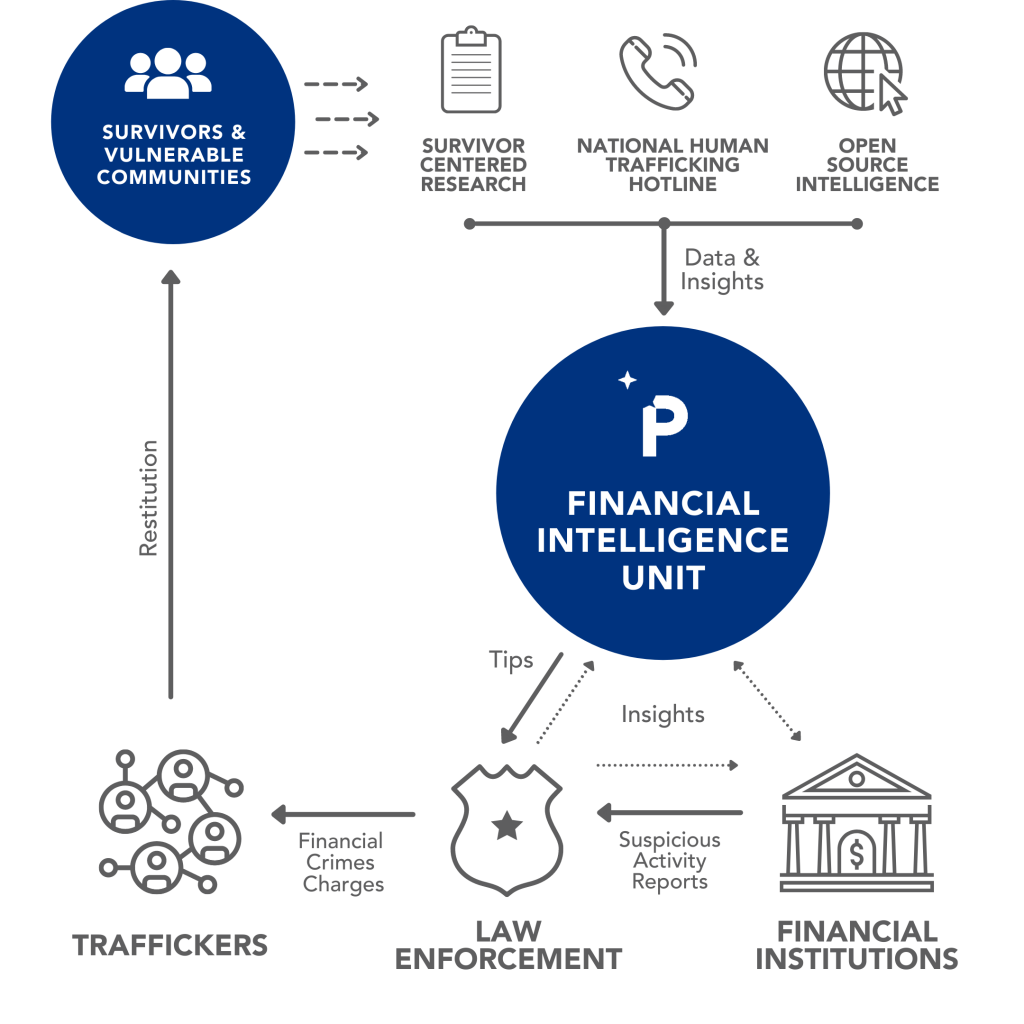Human trafficking is a business. And like any business in today’s economy, trafficking businesses cannot function on cash alone. Instead, they rely on financial services – banks, credit cards, payment processors and the like – all of which leave a virtual paper trail that can be used to identify and dismantle trafficking operations. But first you have to know what to look for. Polaris’s Financial Intelligence Unit, a partnership with PayPal, brings together the anti-money laundering, banking and law enforcement communities with the expertise of human trafficking survivors and others in the anti-trafficking field.

Financial Intelligence Unit in Action

Au Pairs Face Labor Trafficking in the U.S.
With the expectation of knowing more about the U.S. culture, Au Pairs come every year from many countries mostly using a “cultural exchange” visa (J-1). Their experience is not categorized as a job, which opens the door for them to face exploitative situations by unscrupulous sponsors. In this brief, explore how the Au Pair system can turn into a nightmare for these young foreign nationals.
The Fine Line Between Sextortion and Trafficking
Sextortion is a form of exploitation because it is the forced exchange of sexual material between two parties. With the internet having revolutionized the way traffickers recruit victims, sextortion situations can be a gateway to human trafficking.


Coded Language on Social Media
The Financial Intelligence Unit has been able to identify coded language related to domestic minor sex trafficking (DMST) online on social media platforms. FIU analysts found that more so than any other type of DMST, DMST related to the production of Child Sexual Abuse Materials (CSAM) was most common. It should be noted here that human trafficking and CSAM are not synonymous. Explore more in this brief.
Unearthing a Labor Network
While many workers from the H-2A visa program experience abusive labor contractors and exploitative conditions, farms often escape any responsibility. Polaris’s findings from a case study of a labor trafficking network found that farm owners and farm businesses are often not held accountable for labor abuses that happened on their land and in service of their bottom line.

Case Studies – Hotline Insights
The Polaris FIU has studied situations based on actual calls to the National Human Trafficking Hotline to better understand how traffickers operate and how they are using legal ways to “move” the profits generated from an illicit activity: human trafficking.
Case Study
Crypto
Case Study